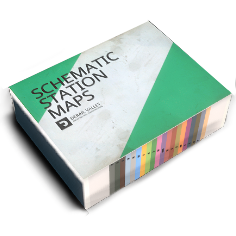Body Damage/sv: Difference between revisions
Updating to match new version of source page |
Updating to match new version of source page |
||
| Line 22: | Line 22: | ||
<div lang="en" dir="ltr" class="mw-content-ltr"> | <div lang="en" dir="ltr" class="mw-content-ltr"> | ||
Body damage can be forced manually in {{pll|Sandbox|sandbox mode}} using the {{pll|Comms Radio Cheat Modes|comms radio damage mode}}. | Body damage can be forced manually in {{pll|Sandbox|sandbox mode}} using the {{pll|Comms Radio Cheat Modes|comms radio damage mode}}. | ||
</div> | |||
<div lang="en" dir="ltr" class="mw-content-ltr"> | |||
Damaged vehicle bodies can be {{pll|Servicing Overview|serviced}}. | |||
</div> | </div> | ||
[[Category:Servicing|4]] | [[Category:Servicing|4]] | ||
Revision as of 14:40, 12 March 2025
Karossen på ett järnvägsfordon kan skadas av kollisioner, hård rangering, allvarliga drivlinafel som gör att delar flyger isär, brand och till och med explosioner. Skador på karossen kan leda till fel på elektriska system, vilket gör att lampor, torkare och andra elektriska funktioner inte fungerar. I övrigt påverkar det inte fordonets rörelseförmåga.
Most common situations in which collision damage occurs is due to derailing, distracted shunting, badly set up switches and wheelslide. Body damage can also be caused by various powertrain failures that cause parts to fly apart, fire and even explosions.
Damage to a vehicle's body may result in failure of various accessories, such as windows, lights and compressors. It doesn't otherwise affect the moving capability of a vehicle, however.
To ensure safe contact between vehicles, it is recommended not to collide at more than 5 km/h. To help anticipate contact better, there are proximity sensor gadgets.
Body damage of a vehicle is displayed on its ID plate.
Body damage can be forced manually in sandbox mode using the comms radio damage mode.
Damaged vehicle bodies can be serviced.
